Someone who is with the victim mentality thinks that everyone is out against them and everything is completely out of their control. Playing the victim can hinder one’s life’s potential and limit their opinion of themselves. But, most of us are unable to see the difference between being a victim and playing one. This article sheds light on the signs someone is playing the victim.
The victim forms relationships with people who will empathize and support her victim mentality. The victim attracts and commits to men who mistreat her so she can feel justified in playing her victim role. Her demeanor tells men she doesn’t deserve to be loved. Men don’t respect her and so they control, dominate and abuse her.
The victim seems to thrive off the emotional pain inflicted by an abusive boyfriend or husband.
She tolerates and even enables her partner’s hurtful behavior. When her abusive partner dumps her (which they always do), she blames the demise of her relationship on his dysfunctional behavior.
The victim draws in friends who are nurturing, caring, and sympathetic to her down-and-out stories, failed relationships, and feigned helplessness.
You try to be a good friend and you try to save her from her seemingly inability to take care of herself—emotionally and/or financially. The victim makes you into her therapist.
You spend many hours listening to her crying jags. You console her and you offer her sound advice on how she can improve her situation. She rejects your advice, she continues her relationship with a toxic, abusive man and she faults everyone for her problems and unhappiness.
She drains you with her see-saw emotions, the constant drama, and her resistance to taking responsibility for her self-destructive behavior. If you try to hold her accountable, she will use tears and guilt to control you and even withhold her friendship.
Read 23 Signs You’ve A Victim Mentality (And How To Deal With It)
The self-victimizer will accept insufferable abusive treatment from their partners.
Rita repeatedly committed to men who helped her realize her victim role. Her boyfriend Vince was an arrogant, controlling, emotionally abusive man. He isolated Rita from her friends and family. He demeaned her appearance and abilities and he verbally battered her.
Rita constantly cried to me about Vince’s deceptive, abusive behavior. I told Rita to get rid of him. She played the victim card, whining, “I’m stupid. I’m ugly. I don’t deserve a good man in my life.”
I felt guilty for making Rita feel bad about herself and so I quickly back-peddled. “That’s not true! You’re attractive, intelligent, caring, and funny. Any man would be lucky to have you.”
Rita continued to date Vince, clinging to his insinuation of marriage as if her life depended on it. She called me day and night, crying about his hurtful behavior, and then one night she called me, wailing about Vince’s behavior.
Read How To Rise Above Victim Mentality and Get Back Your Power
“I gave him oral sex and when I finished, he told me he didn’t want to have sex with me anymore until after we were married.”
Rita was bewildered and deeply wounded. I was livid. “He’s setting you up so he can date other women,” I screamed. “Or he is already dating another woman. Get rid of the jerk!”
Rita rejected my advice and she stopped calling me. Three months later Vince cruelly dumped Rita, fulfilling her role as the helpless, innocent victim. Is this you or someone you know?
7 Signs Someone Is Playing The Victim Role
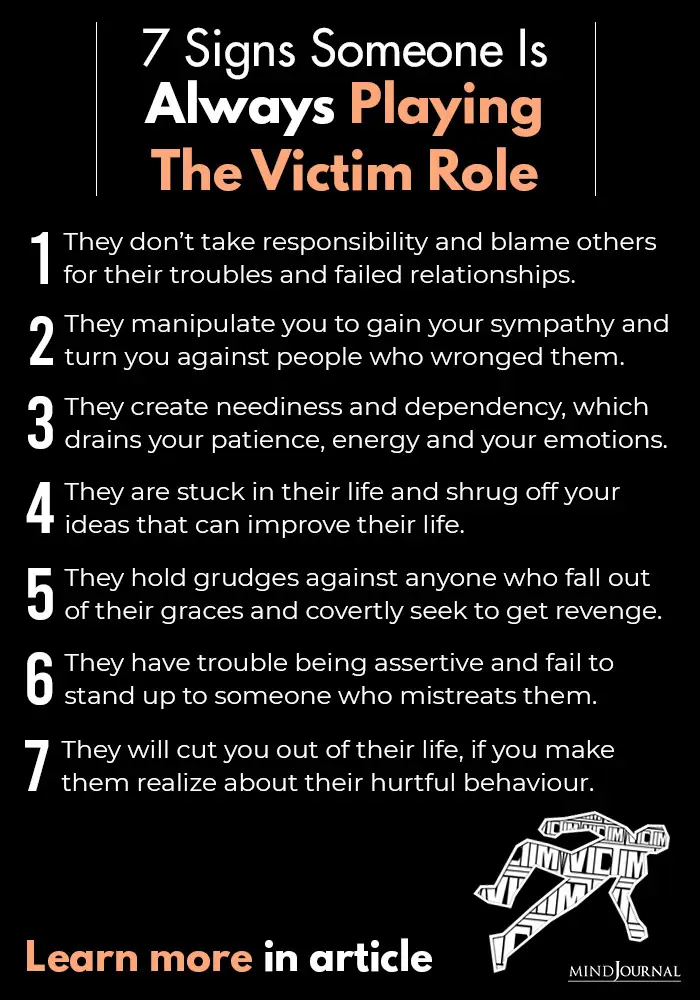
1. They don’t take responsibility.
The victim blames others for her troubles and failed relationships. She whines that her boss is demanding and unreasonable. Her girlfriend stabbed her in the back. Her boyfriend was the sole cause for the problems in her relationship. In the beginning, you believe your friend’s stories of an abusive boyfriend and then you realize, she habitually dates men who mistreat her.
2. They are manipulative.
The victim uses her down-and-out stories to play on your nurturing nature and compassion to gain your sympathy and support. She uses guilt and underhanded coercion to influence you and gain your loyalty to turn you against the people she deemed to have wronged her.
3. They are emotionally draining.
In the beginning, you feel good about helping your friend with her unfortunate circumstances—but she creates neediness and crippling dependency on friends or co-workers. Her refusal to take responsibility for her behavior that contributes to her problems drains your patience, energy, and your emotions.
4. They are stuck in their life.
Victims believe that they are powerless in their life and she will give you a list of reasons why she is frozen in life. You give her suggestions on how to improve the quality of her life but she shrugs off your ideas.
Read Dealing with Toxic Family Members: Narcissistic Abuse Recovery
5. They hold grudges.
The victim puts others down and finds fault in people to gain a sense of superiority. If you fall out of her graces, she will harbor her grievance against you and covertly seek to get revenge.
6. They have trouble being assertive.
The victim struggles to ask for what she wants and needs in life. She lacks healthy relationship boundaries and she is unable to stand up to someone who mistreats her.
Read 30 Red Flags of Manipulative People
7. They will cut you out of their life.
If you try to make her look at the truth about her hurtful behavior, she will suddenly and emphatically cut you out of her life, and then she will trash you to others to get people to side with her.
In a nutshell, Rita dwelled on her hurtful past, telling sad stories about her childhood and marriage. She blamed everyone and everything for the problems in her life. She was extremely suspicious of others and she instigated gossip to turn her friends against someone she imagined had mistreated her.
She held her boyfriend responsible for her toxic relationship, and yet she was afraid to stand up to his abuse because she feared his anger or he would abandon her. When I tried to make her face the truth about her irresponsible, self-destructive behavior, she immediately cut me out of life and she began confiding her problems to another girlfriend
Written By Nancy Nichols
Originally Appeared On knowitallnancy.com
Printed With Permission
What is Victim Personality Disorder?
A person with Victim Personality Disorder refuses to take responsibility for their actions and always feels as though the world is against them.
Signs of Victim Mentality
A Victim Mentality is when an individual displays passive-aggressive and self-defeating characteristics and feels helpless over the way events unfold.
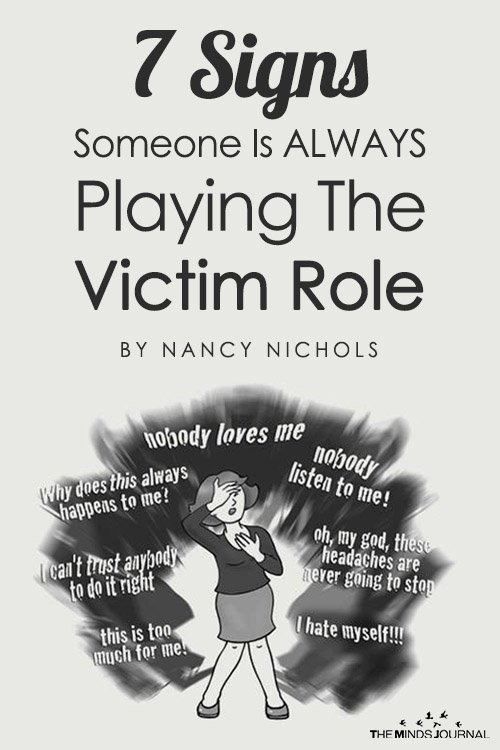

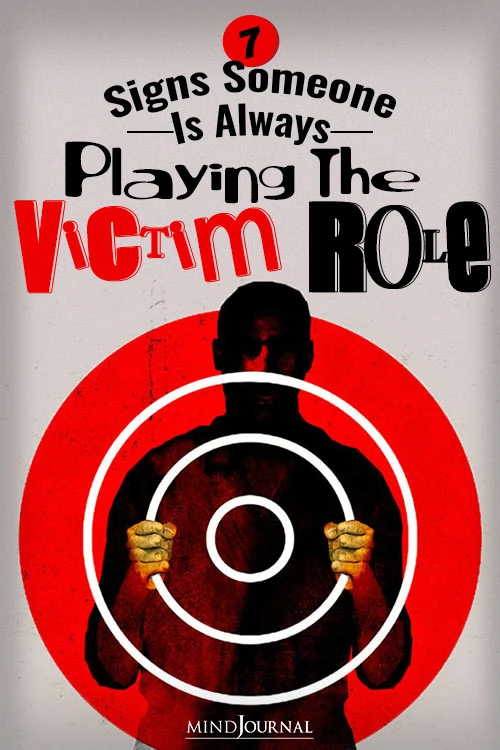
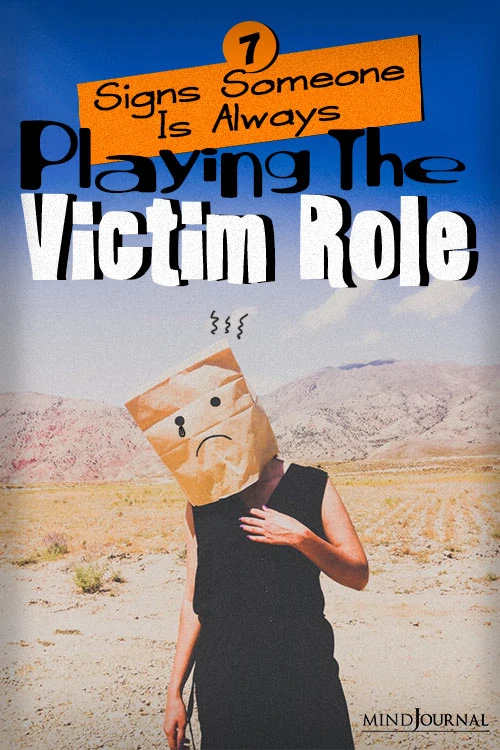
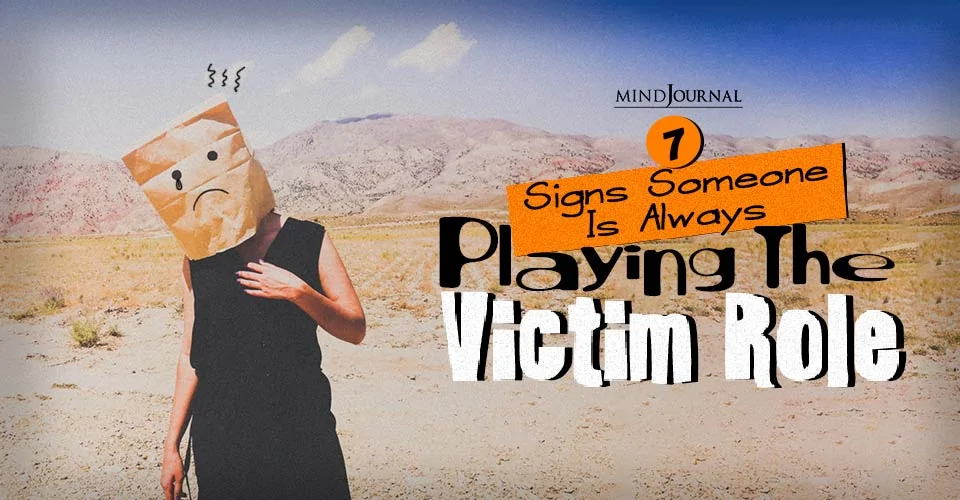






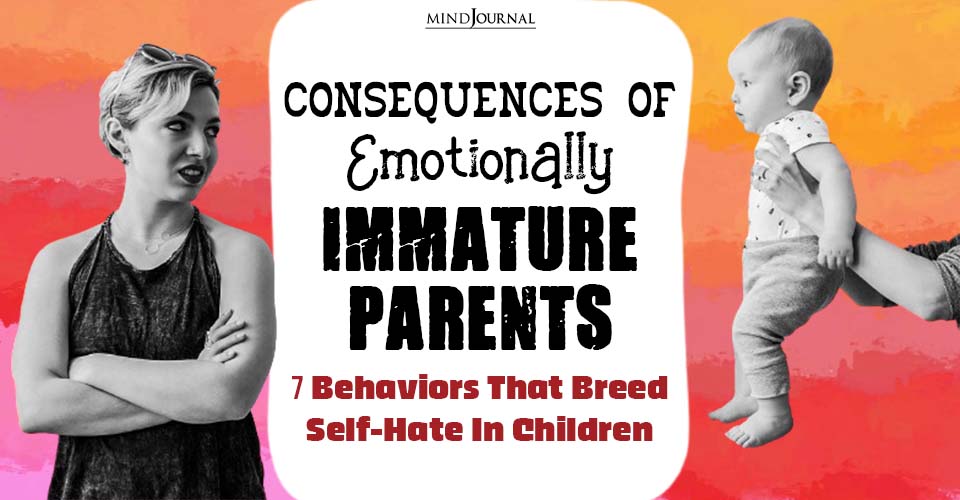
Leave a Reply
You must be logged in to post a comment.